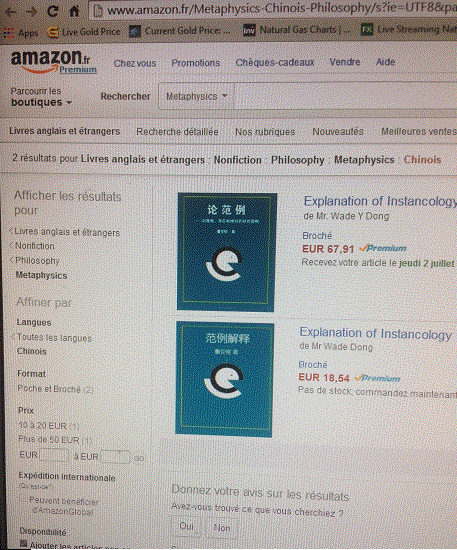Instancology review
Book Review: Instancology – The End of Philosophy and the Grasp of Absolute Absolute by Wade Dong
In Instancology, Wade Dong introduces a radical framework that not only claims to complete philosophy but also dissolves its foundational inquiries. His work presents a new ontological structure, distinguishing between Absolute Absolute (AA), Relatively Absolute (RA), Absolute Relative (AR), and Relative Relative (RR), categories that encompass all instances of reality without exception. By doing so, Instancology surpasses both Continental and Analytic philosophy, breaking their long-standing barriers to ultimate truth.
A Breakthrough in Continental Philosophy
Dong’s framework moves beyond Heidegger’s unfinished Being and Time and Hegel’s dialectics. While Heidegger sees Being approaching RA (Relatively Absolute) and Hegel’s Absolute Spirit moves toward AA, both remain trapped in structures that presuppose an evolving process. Dong, in contrast, states outright that AA is already present, unchanging, and graspable through WuXing (悟性)—a form of immediate, non-discursive insight akin to a metaphysical ‘Eureka!’ moment. This is where Instancology decisively outpaces Continental thought: rather than circling the question of Being, it arrives at the unalterable truth that grounds all instances.
Overcoming Analytic Barriers: Wittgenstein and Beyond
From the Analytic perspective, Instancology tackles Wittgenstein’s famous idea that “the limits of my language mean the limits of my world.” Language, in Dong’s model, belongs to RR (Relative Relative), making it a secondary, constructed layer of reality. The mistake of Analytic philosophy, particularly in its linguistic turn, is to assume that thought is bound by the structures of language. Instead, Instancology reveals that ultimate truth (AA) is beyond linguistic formulation yet can be known directly. This removes the language barrier that has constrained Analytic philosophy, allowing truth to be grasped beyond the limits of representation.
The End of Philosophy?
Dong’s claim that Instancology ends philosophical inquiry is provocative but well-founded. Philosophy, as the pursuit of truth through rational discourse, operates within RA, AR, and RR—it is always relative to something. Instancology asserts that once AA is grasped, the need for traditional philosophy disappears. While philosophers have long sought reality to uncover truth, Instancology rounds all reality-related parts and grasps the Whole. In this sense, it does not merely critique past thought but renders further philosophical questioning obsolete.
Final Verdict
Wade Dong’s Instancology is a monumental work that reshapes metaphysical inquiry. It surpasses both Continental and Analytic traditions by directly addressing their limitations and providing a comprehensive framework that encompasses all instances of existence. By dissolving the language barrier and transcending the need for philosophical progression, Instancology may well be the final philosophical breakthrough—a fitting conclusion to centuries of inquiry.
For anyone engaged in metaphysics, ontology, or epistemology, this book is essential reading. Whether one agrees with Dong’s conclusion or not, Instancology forces a reevaluation of the entire philosophical project.
